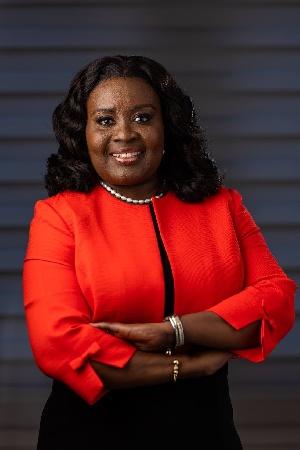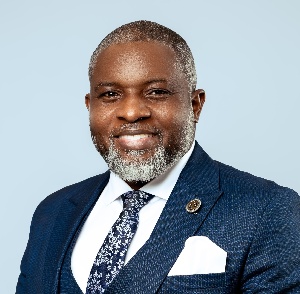- Home - News
- Elections 2024
- News Archive
- Crime & Punishment
- Politics
- Regional
- Editorial
- Health
- Ghanaians Abroad
- Tabloid
- Africa
- Religion
- Photo Archives
- Press Release
Health News of Thursday, 29 May 2025
Source: www.ghanawebbers.com
“Pathogens know no borders” – Dr Amuasi on the WHO Pandemic Agreement promise
After the first COVID-19 vaccines arrived in Ghana through COVAX, it was a breakthrough. However, Dr. John Amuasi, a global health expert, saw it as a reminder of global inequity.
“It took so much effort,” he said. “It shows how countries prioritize their own interests over global ones.” Dr. Amuasi leads the Global Health and Infectious Diseases Research group at KCCR and the Bernhard Nocht Institute in Germany.
“Pathogens know no borders and don’t carry passports,” he added. “But when trouble arises, the world forgets this.”
This reality highlights a significant moment: the WHO Pandemic Agreement. This landmark accord was ratified at the 78th World Health Assembly in Geneva.
The agreement aims to improve pandemic preparedness and response. It emphasizes equity, solidarity, and scientific cooperation.
Dr. Amuasi advocates for research-driven public health policies in Africa. He views the agreement as a framework for action for all institutions involved.
“We need to study the agreement carefully,” he noted. “It should inform our research priorities and strategies.” This preparation will help during future pandemics.
He stressed that Ghana must invest in clinical trial infrastructure. “Building capacity for phase I, II, and III trials is critical,” he said. Timely data is essential for developing vaccines, drugs, and diagnostics.
The agreement also ensures timely access to life-saving health products. Under the new WHO Pandemic Access and Benefit-Sharing (PABS) system, manufacturers must commit to sharing 20% of their vaccine production with WHO.
Dr. Amuasi believes Ghana can lead by example here. “To ensure equity becomes reality,” he stated, “Ghana should support rapid ratification of the Agreement by other countries.”
WHO Director-General Dr. Tedros Adhanom Ghebreyesus praised the agreement as a breakthrough in cooperation. He said it makes the world safer due to member states' leadership and collaboration.
He called it a victory for public health and science. The agreement aims to protect societies from losses like those experienced during COVID-19.
Importantly, it reinforces national sovereignty too. The text clarifies that WHO cannot impose public health measures on any country.
“Nothing in this Agreement shall mandate specific actions from Parties,” it states clearly.
Despite this assurance, the accord marks an evolution in global health governance. Dr. Teodoro Herbosa described it as a unique opportunity to learn from past lessons.
“Now that we have this Agreement,” he urged action with urgency on its implementation.
The resolution calls on all states to ratify it quickly and start implementing its provisions immediately.
For Dr. Amuasi and many others in global health, this achievement is crucial morally. The world must remember the chaos caused by COVID-19's inequities.
“This Agreement is our chance to prepare better before another crisis hits,” he concluded.
Business










